What are Injection Molding Machines
Injection Molding Machines are pivotal in the manufacturing industry, serving as the backbone of plastic production. These machines allow businesses to mass-produce intricate plastic parts with high precision, repeatability, and efficiency. Injection molding machines are suited for a wide array of industries, including automotive, medical, consumer goods, and electronics, to name a few.
The principle behind these machines is relatively straightforward yet ingeniously applied. At the core of the process is the injection of molten plastic into a mold cavity, which then cools and solidifies into the final product's shape. The machine mainly consists of two parts: the injection unit and the clamping unit. The injection unit melts the plastic granules and injects them into the mold, while the clamping unit holds the mold in place during injection and cooling.
This process starts with feeding plastic pellets into a hopper. The pellets are then moved towards the heating chamber where they are melted. A screw mechanism pushes the molten plastic forward, injecting it through a nozzle into a mold cavity under high pressure. Once injected, the material cools down and solidifies into the desired shape. After cooling, the clamping unit opens to eject the finished part, and the cycle can start anew.
Types of Injection Molding Machines
Different types of injection molding machines cater to specific production needs and material types. They vary mainly in how they deliver melted plastic into a mold and how they apply pressure.
Hydraulic Injection Molding Machine: Utilizes hydraulic systems to generate pressure that injects molten plastic into a mold. These machines are known for their ability to produce large volumes of products with consistent precision.
Electric Injection Molding Machine: These machines use electric servo motors for all movements, offering greater energy efficiency, precision, and cleanliness compared to hydraulic systems. They're often used for high-precision applications.
Hybrid Injection Molding Machine: Combines elements from both hydraulic and electric types, aiming to offer a balance between performance, energy efficiency, and cost.
Vertical Injection Molding Machine: Features a vertical orientation of the injection unit and clamping force. This design is beneficial for insert molding processes where components need to be placed in the mold before injection.
Each machine type has its common use cases based on factors such as production volume, precision requirements, material types, and cost considerations.
How to choose Injection Molding Machines
Selecting an injection molding machine for your business involves several considerations that stem from your specific manufacturing needs. When assessing options on Alibaba.com's marketplace, businesses should focus on the materials they intend to process as this dictates the type of machine required. For instance, processing thermosetting plastics may require different machinery compared to thermoplastics.
The volume of production is another key factor; higher volumes may necessitate a machine with faster cycle times and higher durability such as a hydraulic or hybrid model. Conversely, for high-precision parts or smaller production runs, an electric machine may be more appropriate due to its accuracy and repeatability.
Energy efficiency can drive operational costs significantly over time; thus, electric or hybrid models could offer long-term savings despite higher upfront costs. Additionally, consider after-sales services like technical support and maintenance offerings since these ensure ongoing reliability and performance of the equipment.
Best Injection Molding Machines on Alibaba.com
Alibaba.com has established itself as a global marketplace where businesses can source industrial machinery with ease and confidence. With an extensive range of injection molding machines available from suppliers around the world, Alibaba.com facilitates finding a machine that matches any specific manufacturing requirement or budget constraint.
In this diverse marketplace, buyers can explore various types of injection molding machines equipped with features that enhance production such as energy-saving capabilities, high productivity rates, easy operation interfaces, and long service lives. With Alibaba.com's comprehensive filtering system and detailed product listings full of key selling points and machinery test reports, businesses can make informed decisions tailored to their unique needs.
Moreover, Alibaba.com's Trade Assurance service offers peace of mind by protecting payments until delivery is confirmed complete. This commitment to facilitating secure transactions underscores Alibaba.com's dedication to supporting small and medium-sized enterprises in achieving their operational goals through reliable access to quality industrial machinery on a platform that is committed to making international trade more accessible than ever before.
Common FAQs for Injection Molding Machines
What are the primary components of an injection molding machine?
An injection molding machine primarily consists of two main components: the injection unit, which melts and injects the plastic into the mold, and the clamping unit, which holds the mold closed under pressure during the injection and cooling phases.
How do I determine the right machine type for my application?
The selection of an injection molding machine type depends on your production volume, precision requirements, material choice, and part design complexity. Evaluate these factors in relation to the different machine types (hydraulic, electric, hybrid, or vertical) to identify the most suitable option.
What materials can be processed by injection molding machines?
Injection molding machines can process a wide range of thermoplastic materials including PE, PC, PP, ABS, PVC, HDPE, and many others. The specific material compatibility will depend on the machine's design and its heating and pressure capabilities.
Can I use an injection molding machine for high-precision parts?
Yes, electric injection molding machines are known for their high precision and repeatability, making them ideal for manufacturing high-precision parts that require tight tolerances.
What should I consider when it comes to energy efficiency in injection molding machines?
When considering energy efficiency, look for machines with features like servo motors or energy-saving hydraulic systems. Electric and hybrid machines generally offer better energy efficiency compared to traditional hydraulic machines.
How does clamping force affect my choice of an injection molding machine?
Clamping force is a critical parameter that ensures the mold stays closed during the injection process. The required clamping force depends on the part size and material; larger parts with higher viscosity materials typically require higher clamping forces.
Are there machines suitable for small production runs?
Yes, there are injection molding machines designed for small production runs. These machines may be smaller in size and have lower clamping force and injection capacity suitable for lower-volume manufacturing requirements.
What after-sales services should I expect with my injection molding machine purchase?
Look for suppliers that provide comprehensive after-sales services such as video technical support, online support, field maintenance and repair services, and availability of engineers for overseas machinery service.
What is meant by "shot size" in an injection molding machine?
The shot size refers to the maximum amount of plastic that the injection unit can push into the mold in a single cycle. It is a crucial factor to consider when selecting a machine as it directly relates to the size of parts you intend to produce.
How do I choose between a hydraulic and an electric injection molding machine?
Hydraulic machines are traditionally used for their high-pressure capabilities and are suitable for a wide range of applications. Electric machines offer higher precision, faster cycle times, and energy efficiency. Your choice will depend on your specific production needs and cost considerations.
Can injection molding machines handle multiple materials at once?
Some advanced injection molding machines are equipped with multiple injection units that can inject two or more materials simultaneously or sequentially. This is typically used in overmolding applications or when producing multi-material parts.
What is a servo motor's role in an injection molding machine?
A servo motor provides precise control over the movements of various components of an electric or hybrid injection molding machine. This results in improved accuracy, repeatability, energy efficiency, and reduced cycle times.
Is it possible to customize my injection molding machine according to specific requirements?
Many suppliers may offer customization options for their machines. These can range from specific mold configurations to software enhancements or additional modules to suit particular applications or materials.
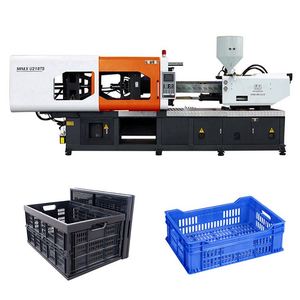








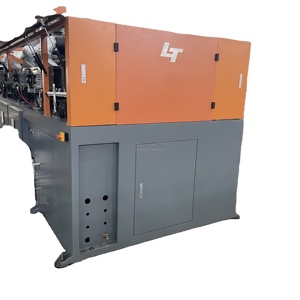

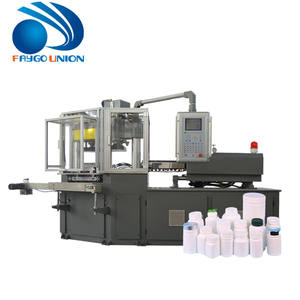


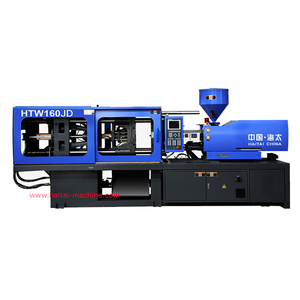
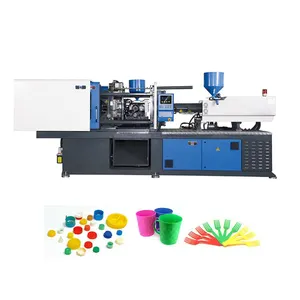
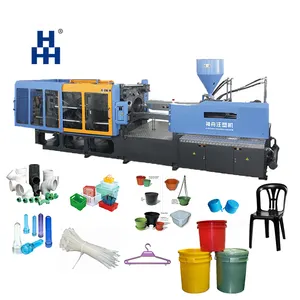







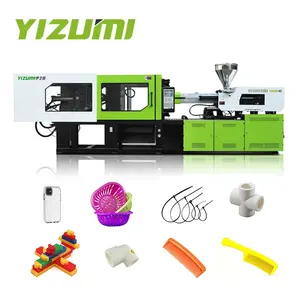


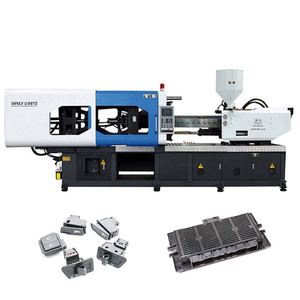

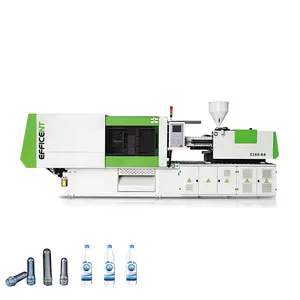




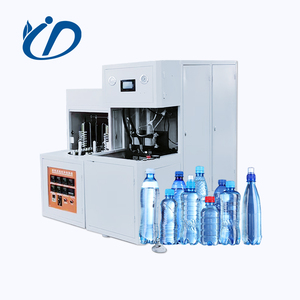

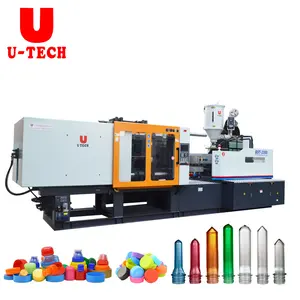
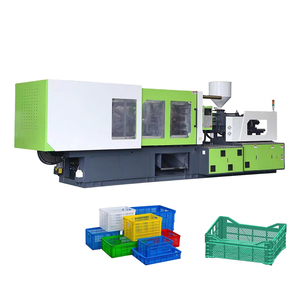







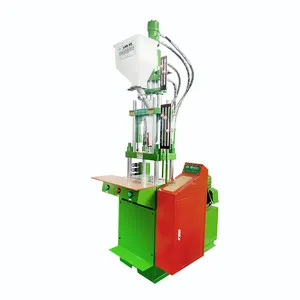

























 浙公网安备 33010002000092号
浙公网安备 33010002000092号 浙B2-20120091-4
浙B2-20120091-4